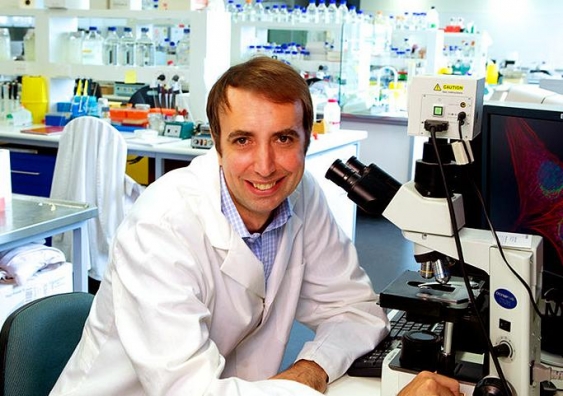Choosing the right degree
A good strategy for choosing what to study at university is to take courses you enjoy and that keep your options open, writes Merlin Crossley.
A good strategy for choosing what to study at university is to take courses you enjoy and that keep your options open, writes Merlin Crossley.

In Leunig's cartoons the intrepid explorer Vasco Pyjama is accompanied by a direction-finding duck. In real life, when HSC students receive their marks and face one of the biggest decisions of their lives few, if any, will have a trusty duck to consult.
If they decide to begin tertiary education, there are nearly 40 universities in Australia, each offering as many as 40 different courses. Many young people will feel paralysed by the sheer range of options and some will experience commitment anxiety. Others will set out to make an informed decision by conscientiously examining similarly named courses but will end up being defeated by incomplete knowledge. It sometimes is just not possible to tell what career options each course can provide or whether or not each student will enjoy living their dream.
In fact, only a minority of students will even have a dream. Joan of Arc had hallucinations and Socrates responded to a "demon", but it is quite normal at the age of 18 not to have developed lifelong passions.
Students who know what they want to do often do very well. If you absolutely know you love maths, then you are a special person and you should perhaps develop this talent, by studying either maths or perhaps maths and commerce.
So, in the absence of that direction-finding duck or the very top marks, what is the best general strategy? The advice I was given was to consider subjects that I had enjoyed and was good at, subjects that would keep my options open, and things that were likely to be more and more important in the future.
At university enjoying the work is extremely important because a lot of the motivation will be self-motivation or motivation from your peer group. Once you form a group of friends who share your interests and talents you are likely to have a good time.
Many universities have special systems to direct students to enter courses that suit their talents. Nowadays formal pre-requisites are rare but students can receive bonus marks on their ATARs, if they do well in subjects relevant to their chosen course.
The UNSW system is called HSC Plus. If, for example, someone wants to do engineering and has done well in maths and physics, scoring band 5 or 6, then bonuses will apply since the student is suited to this course. I am very supportive of HSC Plus, as it can help to drive sensible subject selection within high schools, and students who are weak in one irrelevant subject will not be disadvantaged if that subject has affected their overall ATAR.
Keeping your options open sounds simple but what does it mean? It means that certain subjects - so-called vertical subjects - are more important to maintain because the knowledge is cumulative. If you want to do medicine, then subjects like chemistry are important. Coming back to swot up on chemistry later, to pass a UMAT exam for graduate entry, is possible but it can be challenging.
Fundamental degrees in the enabling sciences keep all options open. Australia needs science and science is becoming more important.
Five hundred years ago, in the Renaissance, most study involved rediscovering the written words of past generations – the great Greek and Roman philosophers. Now, as we head into the Asian century, some familiarity with the foundations of science and technological breakthroughs will be increasingly useful and globally respected.
Science and engineering were also once the domains of men but times have changed. In my faculty the number of male and female students is roughly equal and our top professors include Michelle Simmons, who runs quantum computing; Veena Sahajwalla, who leads our recycling research centre; and Angela Moles, an ecologist awarded one of the Prime Minister's Prizes for Science this year.
So when you receive your HSC results it may be difficult to make a decision, but don't be put off. If your decision turns out to be the wrong one, there will be other options, such as internal transfers within your university after first year or professional master's degrees after your first degree.
Dick Whittington, the fabled lord mayor of London, failed at first in the big city, but as he was walking away Dick heard the bells calling him back to try again and his cat made him a rich man. Success and failure are part of life. Your friends and family will understand if you fail but will be hoping to lead you on to try again and eventually succeed.
Professor Merlin Crossley is Dean of Science at UNSW.
This opinion piece was first published in the Sydney Morning Herald.